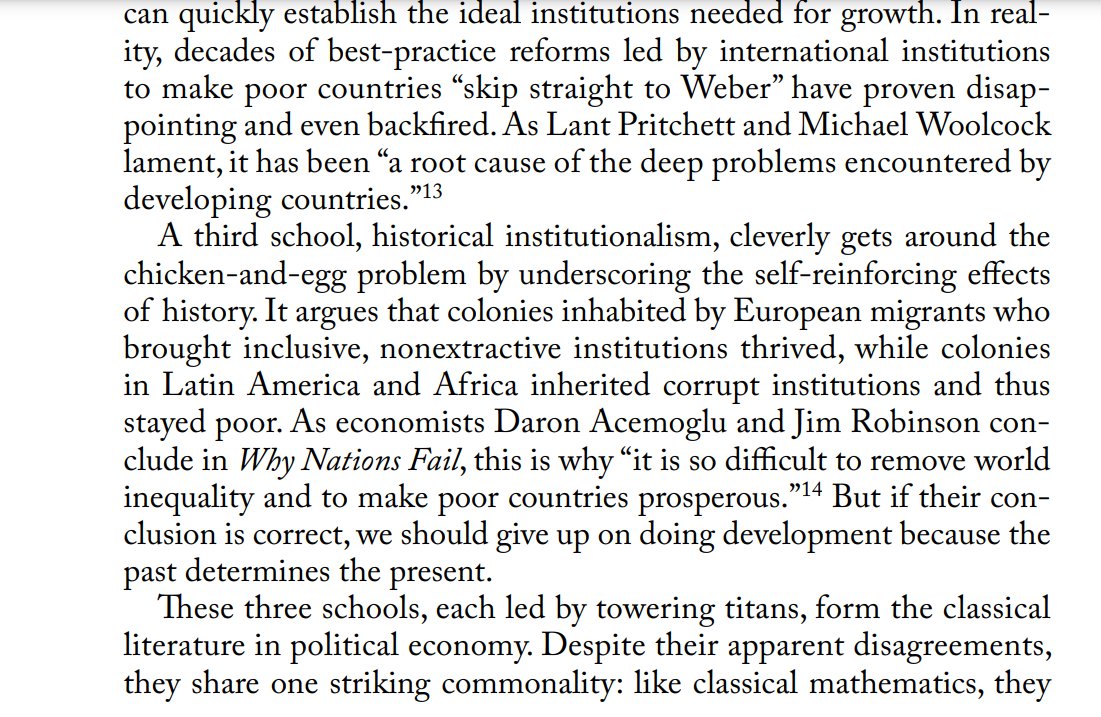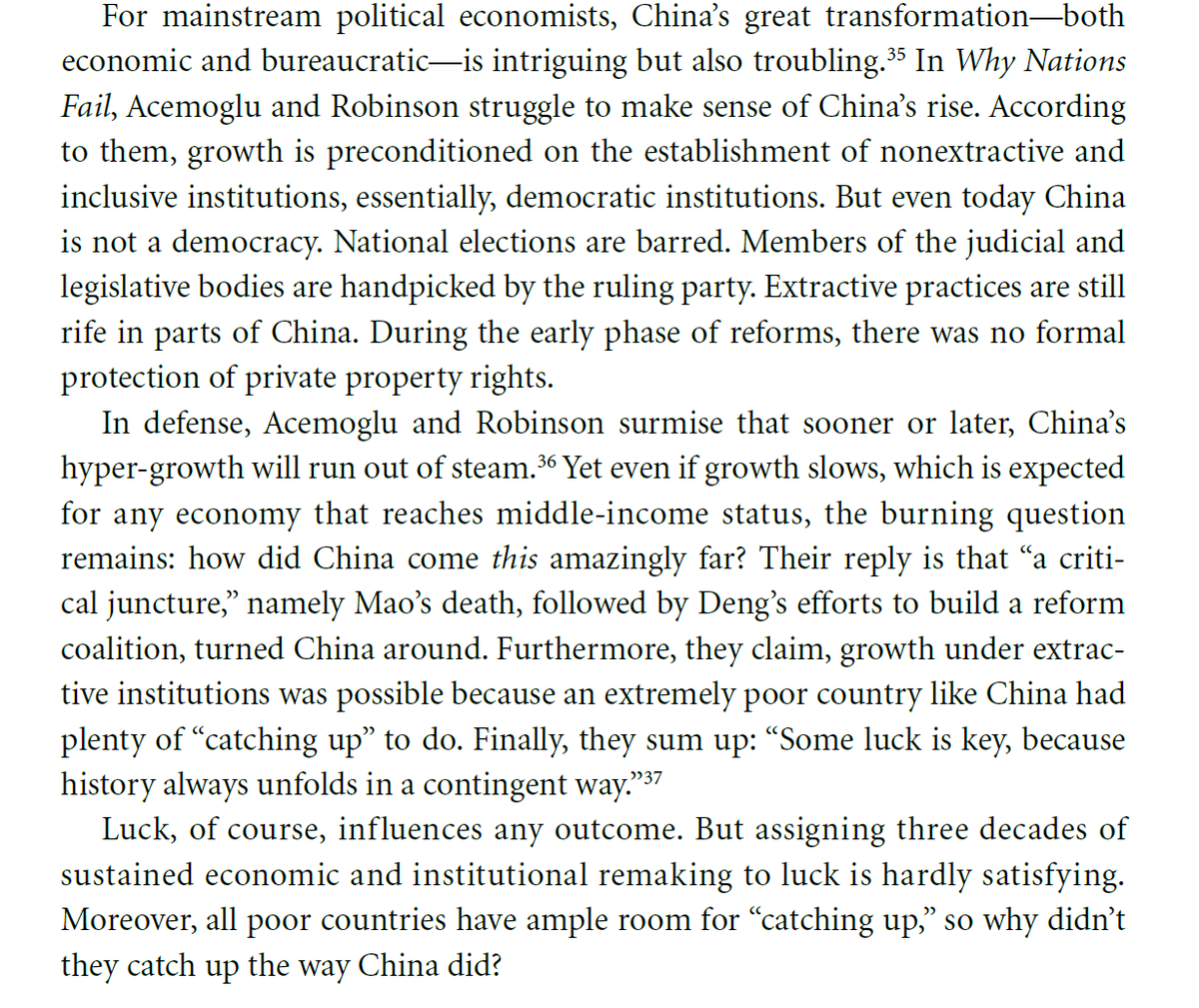Congrats to AJR! 🌟 They are brilliant.
But I don't agree with their idealized portrayal of institutions in Western development
It is historically inaccurate, if not ideologized
Thus, not only do they struggle to explain China, they also can't explain why Western economies like the US prospered despite being as corrupt as China is today
But I don't agree with their idealized portrayal of institutions in Western development
It is historically inaccurate, if not ideologized
Thus, not only do they struggle to explain China, they also can't explain why Western economies like the US prospered despite being as corrupt as China is today
When America was a developing country, did it prosper - primarily or only - because colonists imported "the European form of good institutions"? 

When America was a developing country, it was massively corrupt and engaged in risky public financing schemes - much like China today
Hence term "US Gilded Age"
Gilded ≠ Golden 🤑

Hence term "US Gilded Age"
Gilded ≠ Golden 🤑


Did America prosper - primarily or only - because of “inclusive institutions”?
From US National Archives Museum
For generations, USA “wrestled with the conflict between promise of freedom and realities of slavery and racism”
From US National Archives Museum
For generations, USA “wrestled with the conflict between promise of freedom and realities of slavery and racism”

Admitting fraught histories does not diminish US democracy - on the contrary, it demonstrates honesty & enables true progress. The National Archives does the right thing to educate public.
So why do we celebrate mythologized narratives in the canons of political economy?
noemamag.com/the-clash-of-t…
So why do we celebrate mythologized narratives in the canons of political economy?
noemamag.com/the-clash-of-t…

Let me repeat. It is not only that AJR fails to explain Chinese development, they don't account for the Western / American experience, either.
Mythologized narratives about institutions
Not only mislead developing countries
They also blind rich countries from seeing problems with capitalism & democracy, erupting today
Mythologized narratives about institutions
Not only mislead developing countries
They also blind rich countries from seeing problems with capitalism & democracy, erupting today

Is this historical reality, conveniently omitted in AJR, a thing of the past - or uncannily familiar?
We're living a Second Gilded Age
Access for super-elites; neoliberalism for the rest
We're living a Second Gilded Age
Access for super-elites; neoliberalism for the rest

• • •
Missing some Tweet in this thread? You can try to
force a refresh




























